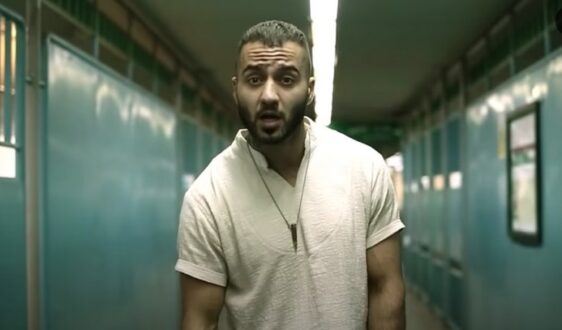RFL/RE – The re-arrest of Iranian rapper Toomaj Salehi has triggered a wave of outrage after reports that armed security agents beat the dissident while taking him into custody even though he is still recovering from being tortured during his previous prison time.
Police detained Salehi, a prominent voice in Iran’s recent social and political movements, on November 30 on a street in Babol, northern Iran.
The Mizan News Agency, which is affiliated with Iran’s judiciary, confirmed Salehi’s re-arrest, alleging it was for “spreading lies and unverified statements on social media,” a charge of disturbing public opinion.
Salehi had only been out for 12 days after enduring 252 days in solitary confinement and a total of one year and 21 days in prison on charges that his supporters said were based on his music and participation in protests during the past year over the death of Mahsa Amini in September 2022.
Ye-One Rhie, a German parliamentarian and Salehi’s political sponsor, criticized the “violent abduction,” linking it to Salehi speaking out about his prison experience. Salehi has said he needs surgery because of injuries sustained from beatings and torture while he was incarcerated.
“When I say he was arrested, I mean he was kidnapped. He was kidnapped without any without any warning, without any identification, without any reasons given why he was beaten and why he was taken so violently,” she said.
“To say that he used his time as a free man after he was released on bail to spread false rumors and to spread lies just because he was talking about his time in prison and his time in solitary confinement, that doesn’t hold against any rule of law,” the German lawmaker added.
Salehi was initially arrested in November 2022 after a period in hiding. His detention then immediately sparked significant attention and demands for his release, both domestically and internationally.
He was sentenced to more than six years in prison but released on November 18 after the Supreme Court, responding to an appeal, found “flaws in the original sentence.” It sent the case back to a lower court for a reexamination and possible retrial.
Once out, Salehi produced a video where he described being injected with a substance, likely adrenaline, to prevent unconsciousness during torture. He recounted the severe beatings he endured, leading to broken hands and feet.
He also said in the video that he filed a complaint against the General Directorate of Intelligence in Isfahan, a claim disputed by the Mizan News Agency. However, Salehi’s lawyer, Amir Raesian, contradicted Mizan’s statement, affirming that a complaint had been filed over his treatment and was under consideration.
Nazanin Boniadi, an actress and prominent opponent of the Islamic republic, condemned Salehi’s violent re-arrest, calling it “devastating.”
Salehi has gained prominence for his lyrics that rail against corruption, widespread poverty, state executions, and the killing of protesters in Iran. His songs also point to a widening gap between ordinary Iranians and the country’s leadership, accusing authorities of “suffocating” the people without regard for their well-being.
 Shabtabnews In this dark night, I have lost my way – Arise from a corner, oh you the star of guidance.
Shabtabnews In this dark night, I have lost my way – Arise from a corner, oh you the star of guidance.



